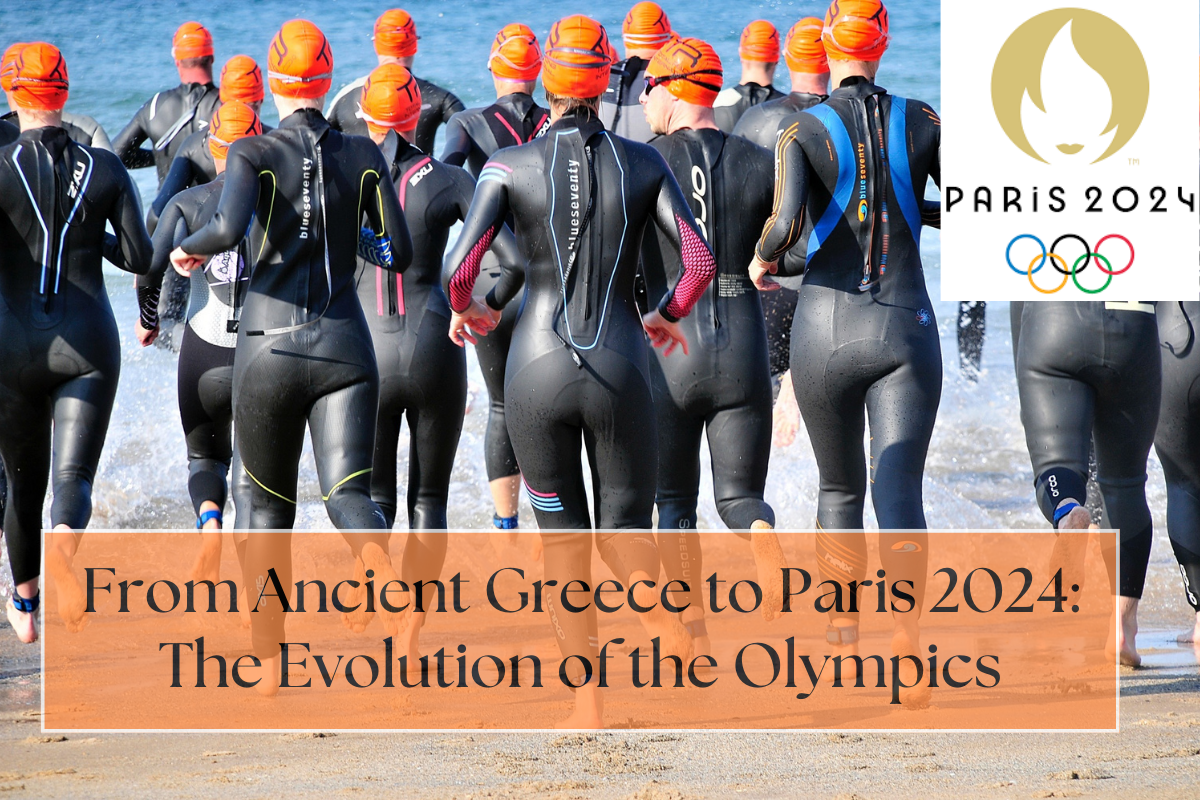The Olympics have a rich history spanning over two millennia, evolving from a modest gathering of ancient Greek athletes to a global phenomenon. This transformation reflects changes in society, technology, and culture, making the Olympics a unique and enduring symbol of human achievement. Here, we trace the journey from the first ancient games to the upcoming Paris 2024 Olympics.
The Ancient Olympics
The origins of the Olympics can be traced back to 776 BCE in Olympia, Greece. These ancient games were held in honor of Zeus and were primarily a religious festival. Only freeborn Greek men were allowed to compete, and events included running, long jump, shot put, javelin, boxing, pankration (a form of martial arts), and equestrian events.
Key Features of the Ancient Olympics:
- Frequency: Held every four years.
- Participants: Exclusively Greek men.
- Events: Mainly individual athletic contests.
- Prizes: Olive wreaths and glory.
The End of the Ancient Olympics
The ancient games continued for nearly 12 centuries until 393 CE, when the Roman Emperor Theodosius I abolished them as part of his campaign against pagan festivals.
The Modern Revival
The modern Olympics were revived in 1896 by Baron Pierre de Coubertin, a French educator and historian who was inspired by the ancient games. The first modern Olympics were held in Athens, Greece, featuring 14 countries and 241 athletes competing in 43 events.
Key Features of the Modern Revival:
- International Participation: Athletes from multiple nations.
- Expanded Events: Inclusion of new sports and team events.
- Olympic Ideals: Promotion of peace, friendship, and fair competition.
The Evolution of the Modern Olympics
Over the years, the Olympics have undergone significant transformations, adapting to changes in global society and technology. Here are some notable milestones:
1. Inclusion of Women (1900)
Women were allowed to compete for the first time in the Paris 1900 Olympics, participating in tennis and golf.
2. Introduction of the Winter Olympics (1924)
The first Winter Olympics were held in Chamonix, France, featuring sports like skiing, ice hockey, and figure skating.
3. Broadcasting and Media (1936)
The Berlin 1936 Olympics were the first to be broadcast on television, significantly increasing global viewership and interest.
4. The Olympic Torch Relay (1936)
The tradition of the Olympic torch relay began in the Berlin 1936 Olympics, symbolizing the connection between ancient and modern games.
5. Professional Athletes (1988)
Professional athletes were allowed to compete starting with the Seoul 1988 Olympics, enhancing the level of competition.
6. Technological Advancements (2000s)
The Sydney 2000 Olympics marked the beginning of extensive use of digital technology and the internet, transforming how the games were viewed and experienced.
7. Sustainability and Inclusion (2020s)
Recent Olympics, including Tokyo 2020 and the upcoming Paris 2024, emphasize sustainability, gender equality, and inclusivity, reflecting contemporary global values.
Paris 2024: A Look Ahead
The Paris 2024 Olympics promise to be a celebration of sport, culture, and innovation. Key features include:
- Sustainability: Aiming for carbon neutrality with eco-friendly venues and initiatives.
- Gender Equality: Equal representation of male and female athletes.
- Urban Sports: Introduction of sports like skateboarding and breakdancing to attract younger audiences.
Table: Key Milestones in Olympic History
| Year | Milestone | Description |
|---|---|---|
| 776 BCE | First Ancient Olympics | Held in Olympia, Greece |
| 393 CE | End of Ancient Olympics | Abolished by Roman Emperor Theodosius I |
| 1896 | Modern Olympics Revival | Held in Athens, Greece |
| 1900 | Inclusion of Women | Women competed in tennis and golf |
| 1924 | Introduction of Winter Olympics | First Winter Olympics in Chamonix, France |
| 1936 | First Televised Olympics | Berlin Olympics broadcast on television |
| 1936 | Introduction of the Olympic Torch Relay | Symbolic connection between ancient and modern games |
| 1988 | Professional Athletes Allowed | Beginning with Seoul Olympics |
| 2000 | Extensive Use of Digital Technology | Sydney Olympics revolutionized viewing experience |
| 2024 | Paris Olympics | Focus on sustainability, gender equality, and urban sports |
The Olympics have come a long way from their ancient origins in Greece to the upcoming Paris 2024 games. This evolution reflects broader changes in society, technology, and values. As we look forward to Paris 2024, we celebrate the enduring spirit of the Olympics and its ability to bring the world together through sport.










